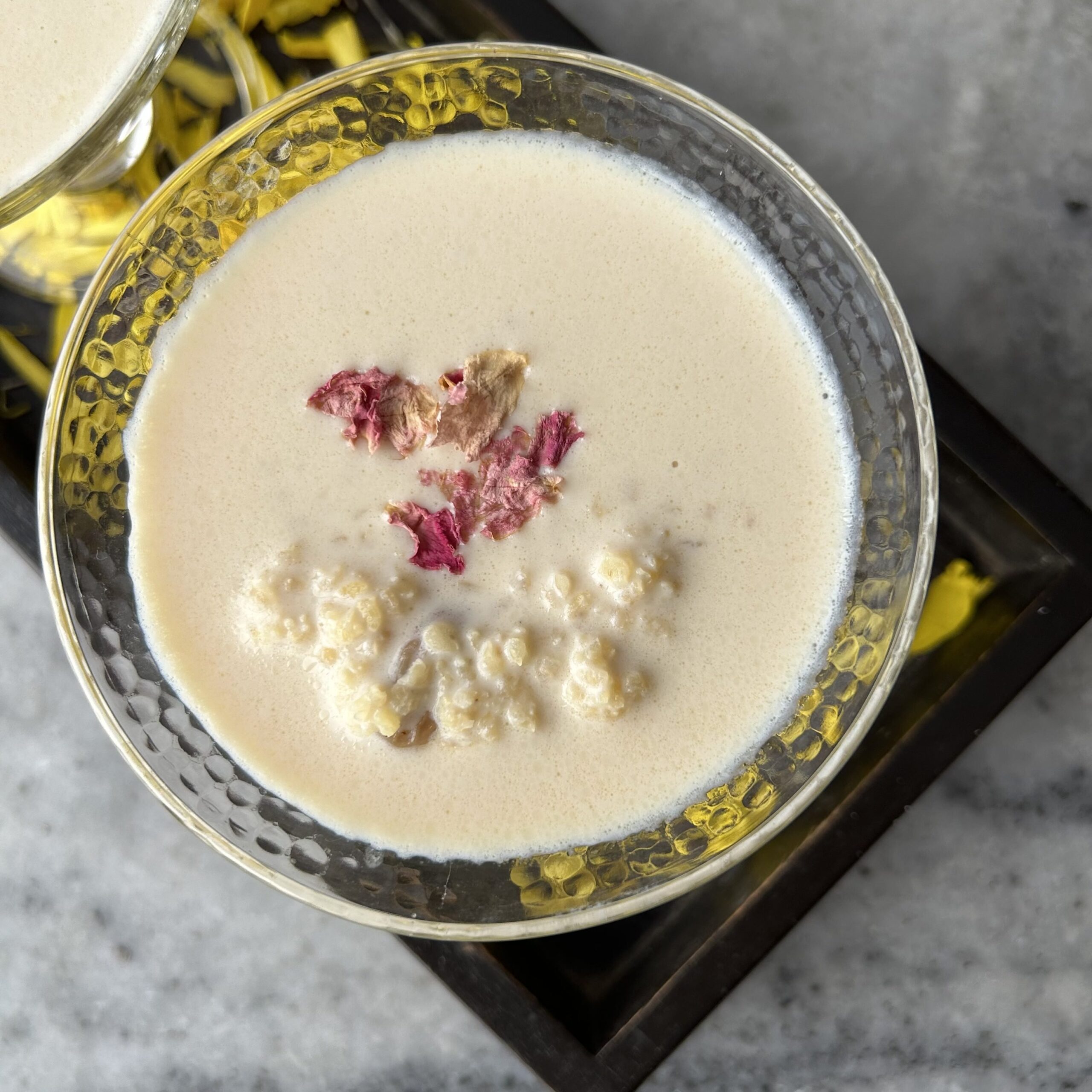
| Dried rose petals (for garnish) | 1 tablespoon |
|---|---|
| Cashews and Raisins | ½ cup |
| Desi ghee | 1 tablespoon |
| Green cardamom | 1 pod |
| Salt | a pinch |
| Condensed milk | 2 tablespoons |
| Milk | 3 cups |
| Jaggery granules | ¼ cup |
| Proso millet | ½ cup |
What You Will Need
Spatula, thick bottomed pan/kadhai, bowls for plating.
Instructions
Soak the proso millet in water for three hours. Strain the soaked proso millets and remove the excess water.
In a thick bottomed pan, heat up the ghee till it is moderately hot, and saute the cashews and raisins till golden brown. Switch off the flame, transfer the cashews and raisins to a bowl, and keep aside.
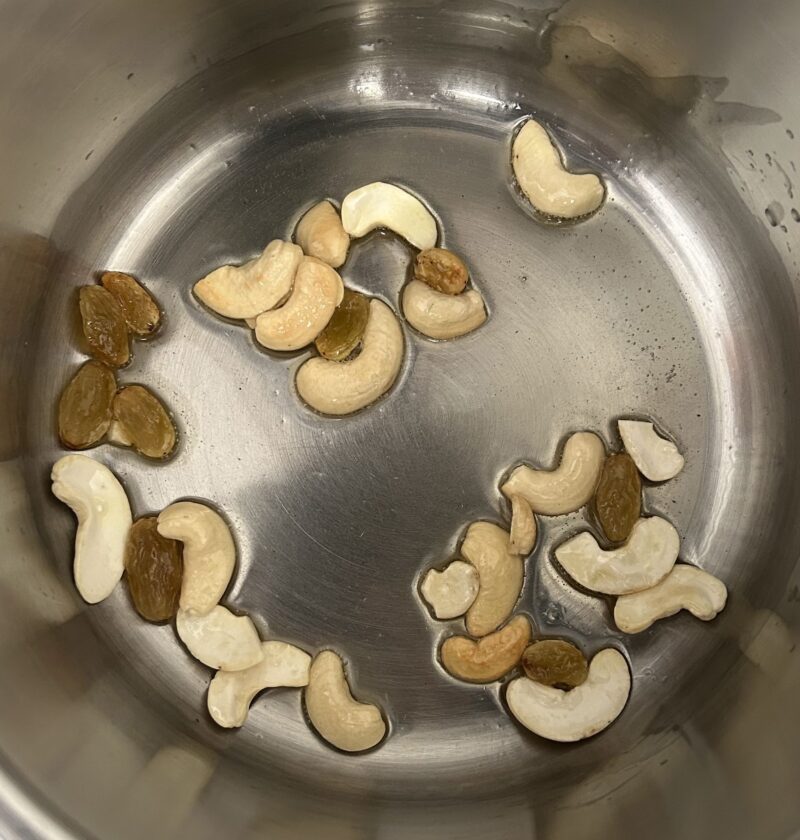
In the same pan used to fry the cashews and raisins, heat up the remaining ghee, add the soaked millets and fry until it is light brown in colour.
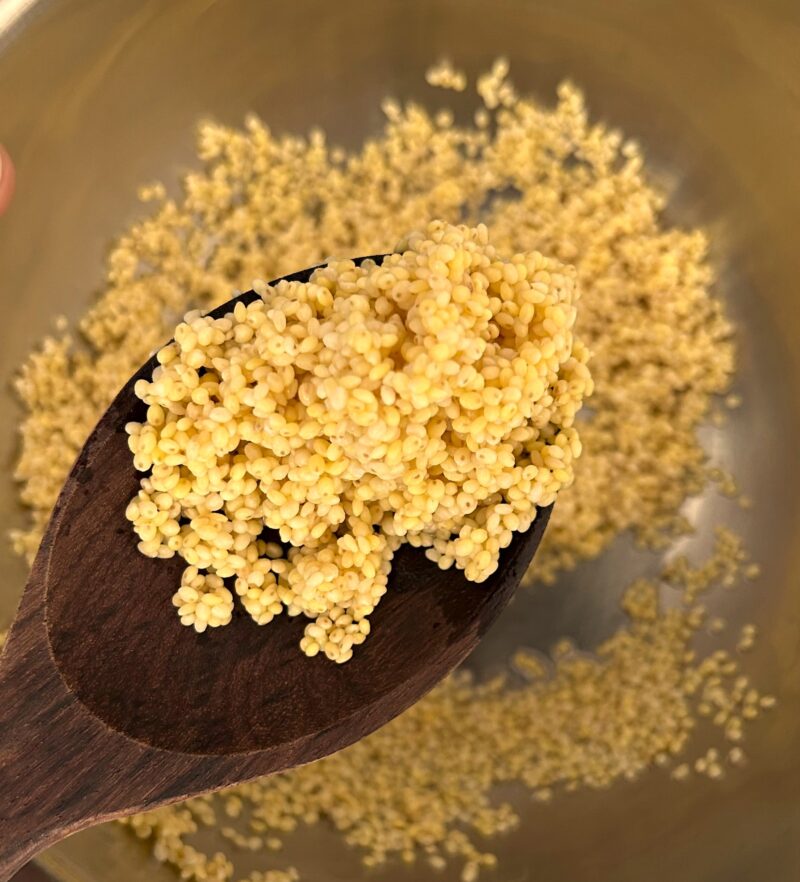
Add the cardamom pod, salt, milk, sauteed cashews and raisins, and jaggery to the pan.
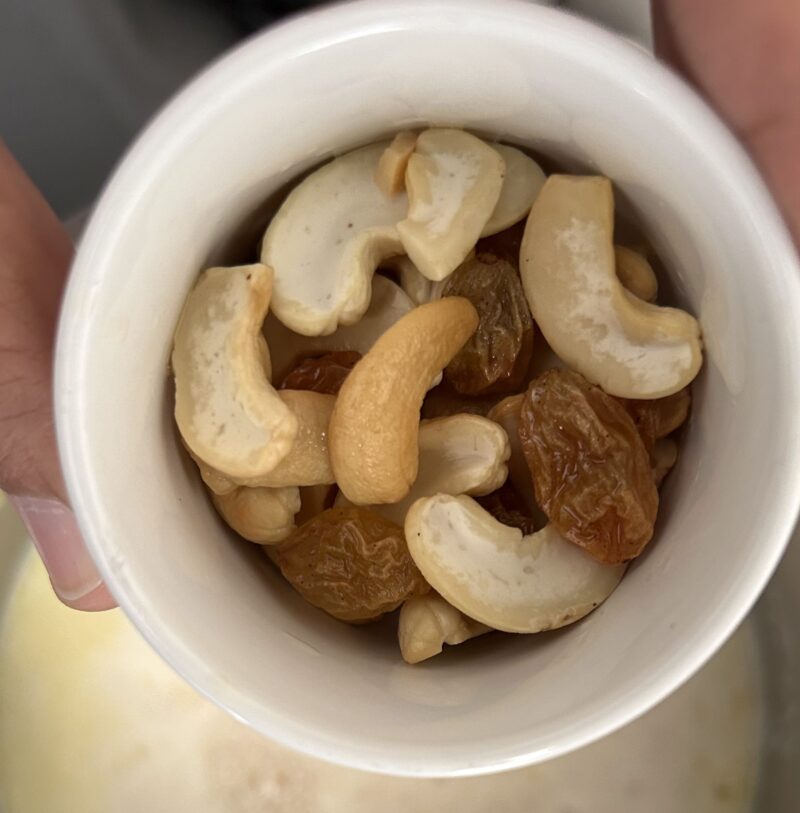
Simmer on a low flame till the mixture thickens, for about 30 to 40 minutes, and then add the condensed milk.
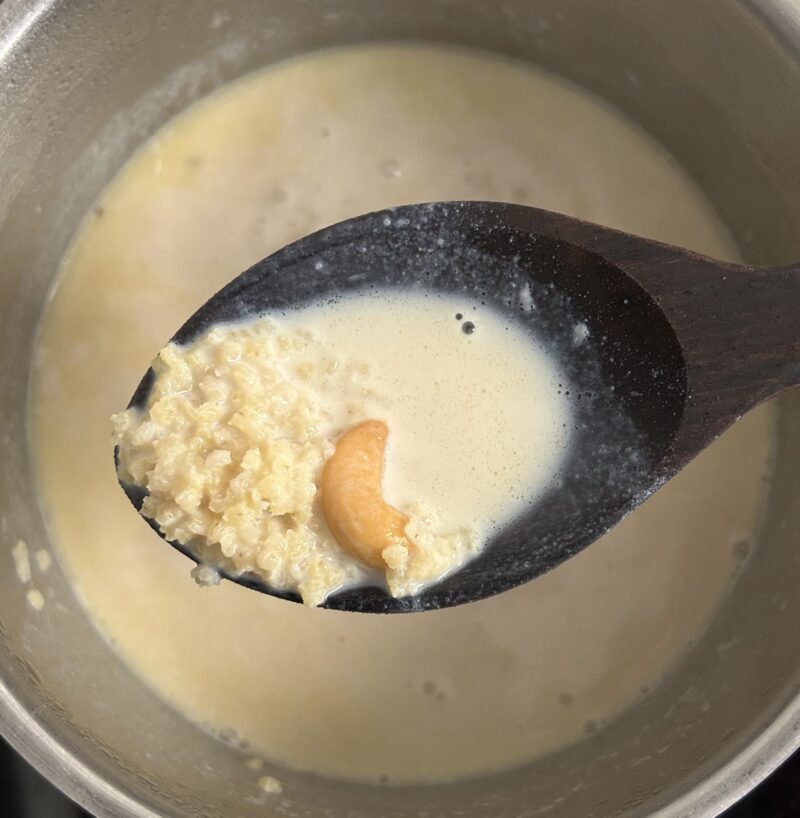
Remove from the heat, transfer into serving bowls, and garnish with dried rose petals.
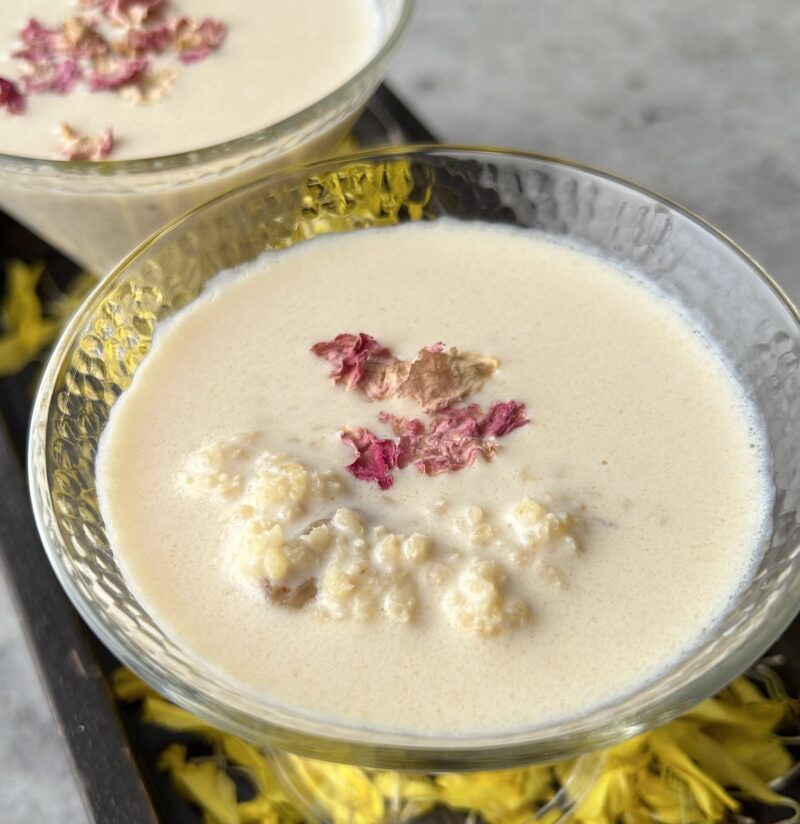
Tips
Keep stirring the proso periodically (at around five minute intervals) while cooking to stop it from sticking to the bottom of the pan/kadhai and burning.
Serve the phirni lukewarm; it does not taste good cold because of the gritty texture of the millet.
Try using chironji, if available, instead of cashews. It is delicious cooked in milk, and will complement the nuttiness of the proso.
Chef Ankita Jain has spent more than 15 years working as a chocolatier. While she enjoyed shaping the kitchen at Harsh Chocolates, her passion for healthier food led her to start Bicycle Kitchen. Over the past three years, she has experimented with millet-based recipes and perfected them.
Shreya Jain was a volunteer with the Millet Revival Project’s Cooking Lab through Phase I of the project.

This recipe is part of the Millet Revival Project 2023, The Locavore’s modest attempt to demystify cooking with millets, and learn the impact that it has on our ecology. This initiative, in association with Rainmatter Foundation, aims to facilitate the gradual incorporation of millets into our diets, as well as create a space for meaningful conversation and engagement so that we can tap into the resilience of millets while also rediscovering its taste.

Rainmatter Foundation is a non-profit organisation that supports organisations and projects for climate action, a healthier environment, and livelihoods associated with them. The foundation and The Locavore have co-created this Millet Revival Project for a millet-climate outreach campaign for urban consumers. To learn more about the foundation and the other organisations they support, click here.
You must be logged in to rate this recipe.

Sign in with email
